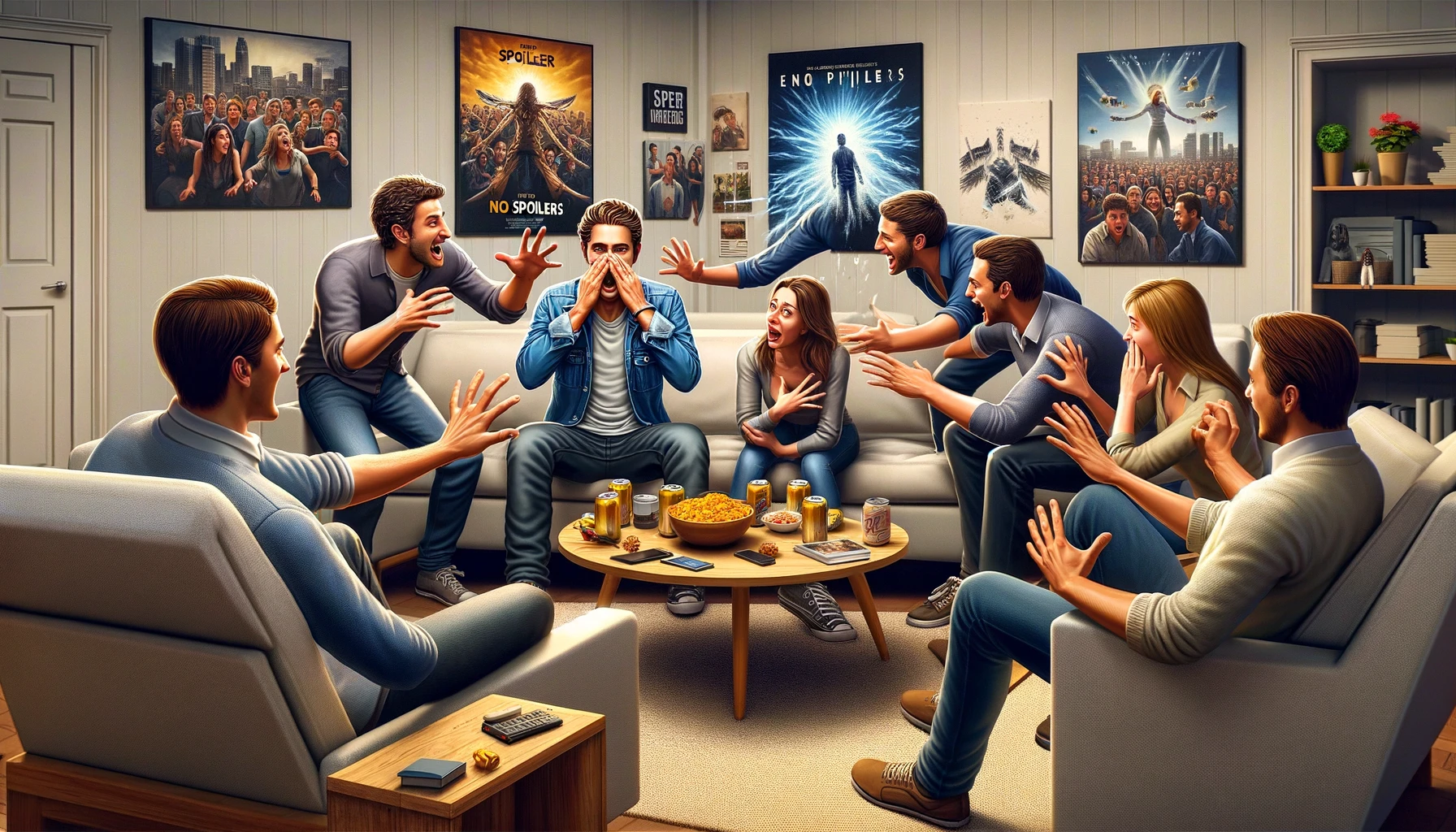In a twist of ironic fate, a new study has revealed a shocking truth: those who loudly demand protection from spoilers are precisely the ones most likely to accidentally ruin the plot for others.
The study, conducted by the Institute for Overenthusiastic Fandom, meticulously analyzed social media posts, watercooler conversations, and passive-aggressive book club exchanges. Researchers discovered a strong correlation between individuals who vehemently declared “No spoilers, please!” and a startling propensity to accidentally blurt out major plot twists or casually reveal key character deaths.
“It’s a fascinating, and let’s face it, rather hilarious phenomenon,” admits Dr. Amelia Chatsworth, lead researcher on the project. “It seems the more a person fixates on avoiding spoilers, the more their brain subconsciously clings to the shocking details, leading to an almost uncontrollable urge to share the forbidden knowledge.”
Interviews with self-proclaimed “Spoiler Phobes” reveal a mixture of frustration and resignation. “I just want to experience the joy of a story unfolding naturally!” wails Sarah, a passionate bookworm and unintentional spoiler-distributor. “Then, before I can stop myself, I’m blurting out that Dumbledore dies, or Rosebud is a sled, or whatever. It’s a curse!”
The study has caused a delightful uproar in online fandoms and pop culture circles. Spoiler-sensitive individuals have expressed a mix of indignation and grim recognition, while others gleefully capitalize on this newfound information, strategically mentioning beloved TV shows and movies in the presence of notorious “Spoiler Phobes”.
Behavioral experts offer a possible explanation for this phenomenon. “The fear of spoilers can create a hyper-awareness,” suggests Dr. Phillip Telltale. “This heightened anxiety actually increases the likelihood of inadvertently recalling and revealing the very thing one is so desperate to avoid.”
Meanwhile, the entertainment industry is abuzz with the implications. Will movie trailers now include warnings not just for graphic content, but also for potential spoilers given away by overly enthusiastic fans? Will writers start adding in decoy twists, purposefully designed to mislead the “Spoiler Phobes” and create a new level of meta-narrative?
One thing’s for sure: the war on spoilers has just gotten even more interesting. And for those who live in fear of having a thrilling movie or a gripping book ruined, the best defense might be to simply embrace the chaos. After all, in the quest to avoid spoilers, the true spoiler might just be yourself.

